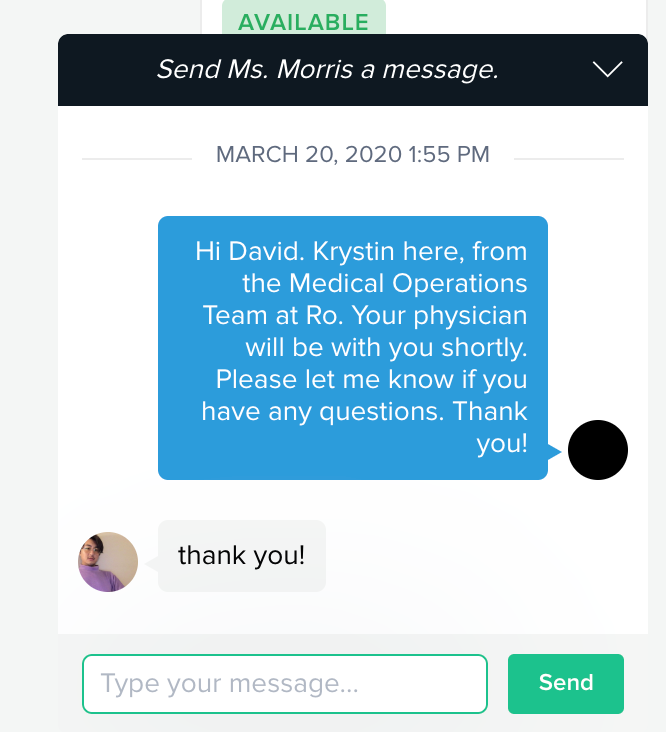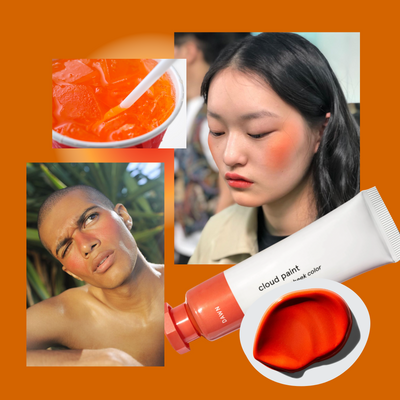It’s really never a good time to be a hypochondriac, but living at a time of COVID-19 really is not the time.
So said my brain loudly to itself this past weekend. I woke up with a sore throat and having read way too many articles on COVID-19, was paranoid that I, too, may have gotten the virus.
SEE ALSO: I’m surviving self-quarantining with beauty meditations.

I’m currently in Colorado, in a city that confirmed its third case. But I’ve also been in contact with people at the supermarket, and having to go back and forth to another city due to a death in the family. Without the luxury of being indoors 24/7 for the past two weeks, there’s no doubt that I’ve been in spaces that the COVID-19 virus could have lingered.
It’s horrifying to read studies that find the virus and remain in the air for up to three hours. Worse, it can survive up to four-hours on copper, 24-hours on cardboard, and up to two or three days on plastic and stainless steel. Essentially, this virus isn’t playing around – it’s serious.
But with mixed messages from our president, a shortage of COVID-19 tests, and phone lines to doctors tied up, the best you can do is fend for yourself, self-diagnose or spiral. Which is why it was so amazing to discover that Ro, the telehealth company, offers free video consultations with real doctors. Called a “free telehealth triage service,” it’s one that provides you with a one-on-one video chat with an expert.
This service is a game-changer for so many reasons. For one, if your symptoms aren’t serious, you can unburden the phone lines to those who need emergency help. It also frees you from exposing yourself or others to potential illnesses by walking into a hospital or doctor’s office. For someone with “low-risk,” that is an individual who hasn’t been exposed to people in the past few weeks, it could even be more dangerous to visit said doctors IRL.

This past weekend, I took Ro’s offer to assess myself. I woke up with a sore throat and a stuffy nose, unsure if this was allergies (it is the season!), or, perhaps, something more nefarious.
First, I took Ro’s assessment, which asks you questions on your symptoms, if you’ve been exposed to someone with related symptoms, or traveled outside the state/country. Afterwards, I received a text informing me the doctor was in and that I could connect with them.
Below, my experience with Ro’s triage assessment, who matched me with Dr. Smith, a physician in Tennessee. And now, for Very Good Light readers, you, too, can talk to an online doctor for free. Just check out covid.ro.co/vgl.

David: With this virus, it’s really scary because you can go asymptomatic for days – or weeks. Where can you get tests?
Dr. Smith: New York is limiting testing for asymptomatic people. But you can be incubating for 7-10 days and potentially spread the virus when you’re asymptomatic. I agree with the whole stay at home and don’t go out unless you have to. This prevents spreading to someone who is at-risk or more susceptible to it.
D: Sneezing isn’t a symptom?
DS: The big thing is the dry cough, fever, tightness of the chest. It’s not to say someone with COVID-19 doesn’t have sneezing. But I’d say you’re safe. Don’t touch your face, practice social distancing, wash your hands, don’t go out in the public unless you have to. Even in the home practice distancing, no hugging as well.
D: How do we flatten the curve?
DS: If people follow the rules, if you’ve seen the spring breakers, it’s disheartening. But once testing is widely available, unfortunately, I think we’ll find more people actually have the virus. That will further show the scope of what’s happening.
I think flattening the curve will happen if people heed the warnings. There are a subset of people who don’t think it’s real and think it’s just like the flu. Unfortunately, those are the Americans who are going to get others in trouble.
D: Is flattening the curve going to be soon or our new normal?
DS: I think it’s going to go on at least for another 3-4 months. I think two weeks is sort of an opening of the door to prevent the spread. It’s going to take more than that. Looking at the situation in China and Italy, we’re going to parallel that. It’s not going to be an major concern until at least July.
D: Talk to me about high risk people.
DS: Any age past 50 or with anyone with immune issues regardless of age, that’s a high risk part of the population. I would say 70 and above are at high risk.
D: More than the virus, I feel it’s taken an emotional toll on people. For me, I realize I haven’t wanted to go to bed in fear that the next day I’d wake up with chills or a fever.
DS: I can share that with you. I look at Worldometer and looks at the cases around the planet so I think to a certain extent, just focus on something else before you go to sleep, which affects your sleep, which affects your immune system. Make sure you stay well hydrated. Take a zinc supplement. Hydroxychloroquine or chloroquine has been used for SARS in the past but Dr. Fauci from the CDC he’s being cautiously optimistic about it. There have been trials done to see if it does make a difference or with safety with it.
D: What would you suggest to people who do exhibit symptoms?
DS: Self-quarantine for two weeks, don’t just go to an emergency room. People call because of the fear. They don’t have concerning symptoms and just want to talk to someone to be reassured that they don’t have it or have increased risk. I think it’s peace of mind. A lot of practices have the abilities to do a test to say, an Urgent Care. In this situation they’re working on a point of care test, a courier has to take it, they then test it. It’s 48-72 hours and you can imagine the fear and stress of waiting for it to come back. A lot of it is evaluating the person as a whole, their risks and their symptoms. I’m disappointed that testing hasn’t been widely available in the United States. Here locally in Tennessee they were doing drive-thru testing but again, you won’t get results by the time you leave.
D: Thoughts on ibuprofen?
DS: There’s been some concern with ibuprofen decreasing the immunity’s response. In one way, a lot of people think a fever is a bad thing but it’s the body’s attempt to get rid of the virus. A coronavirus is heat-sensitive, a fever is the best defense against it. I would stick with Tylenol because it’s not an anti-inflammatory and not use an Aleve or Motrin.
D: So, just to be clear: you don’t think I have COVID-19?
DS: Unless you have a fever or tightness of the chest, I don’t think what you’re exhibiting is COVID-19.
D: Thank you, doctor! Be safe.
Get your own assessment with Ro x VGL’s free COVID-19/coronavirus assessment here: covid.ro.co/vgl






